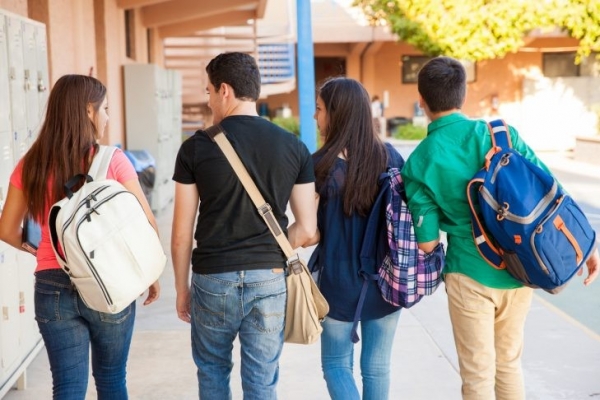Historically there has been a direct correlation between times of economic strife and hikes in student enrolment, so industry observers are sceptical that there will be mass deferrals. Then again, the sheer ubiquity of the catchphrase “these unprecedented times” suggests that nothing is certain.
For the University Guys’ David Hawkins, rethinking your options involves having an honest conversation with yourself about risk versus reward. What were your reasons before January for going to university? How has the pandemic changed your circumstances, your motivations and your finances? To what extent will it continue to threaten your health?
Of course, one reason for not going to uni this year might be that you’re simply unhappy with your A-level results. Retaking your exams in the autumn is possible, but bear in mind that the 2020 applicant cohort was going to be the smallest in 18 years, even before Covid-19 hit. Moreover, with the gap left by those international students who don’t take up their offers, universities will have seats to fill. While the government has warned against unconditional offers and lowering standards, admissions processes will potentially be more flexible. Clearing starts on 6 July, so keep an eye out. Most importantly, though, deferrals in 2020 will only result in greater competition in 2021. Not only will there be more people applying: if universities have to make cuts this year, there will be fewer places.
The pandemic has led Griffith Smith, currently in year 13 in Hackney, London, to a switch from the anthropology degree he’d applied for to architecture. And then, in the light of the protests he has taken part in, to really questioning whether architecture was the right way to go too. “Seeing so much injustice in the world makes me, and many other people my age, want to get involved in politics.” His gap year plans – travelling around New Zealand – have been similarly shaken up.
How to explore the world within the confines of a global pandemic poses an interesting challenge. The UK government is still advising against all non-essential travel, and countries including the US have severely restricted who can go there. But StudentUniverse notes that no country right now is ruling out travel from September. Sam Willan, the travel agency’s general manager for the UK and Australia, says searches are up 20% week on week for Asia, the US and the South Pacific; bookings meanwhile are up 30%. “There are some great prices out there for the end of the year or early next year, for those who are willing to take a chance.” And there’s the rub. Airlines are keeping date changes and cancellations free of charge, precisely because you’ll need to be prepared for things to change – or for you to be stuck there – in the event of a second wave.
The same applies to study abroad. Charlie Ball, Prospects’ head of higher education intelligence, says there are no nations telling students not to come in September. Australia is mooting a shorter quarantine period for students from as early as next month and New Zealand’s 14-day group quarantine for international student arrivals will double up as an induction period. But, Ball warns, if the second bout of coronavirus piggybacks on flu season next year, will you be OK being in lockdown that far from home? In Canada, McGill University has announced that autumn 2020 courses will primarily be delivered online, meaning you could in theory not even travel to Montreal to get stuck in.
It can help to remember that everyone’s plans have been affected. As YouTuber Jack Edwards, who has just done his finals in English literature at Durham University, points out, “when a future employer or university sees we’re the class of 2020, it’s not like we’ll have to add a disclaimer. They’re going to know.” His advice is to seize the day and set up opportunities for yourself.
Gap year options
Resit A-levels? You will be able to retake your exams in the autumn – most likely in November – either through your school, a sixth-form college or online, via the likes of Pearson Edexcel and Cambridge Assessment International.
Volunteer? Check-in with the Trussell Trust to find your local food bank; lend a hand in a care home; build up a charity’s social media presence, remotely. Follow AgeUK’s lead and look out for your elderly neighbours. Get involved in anti-racism charities, including the Stephen Lawrence Charitable Trust, Kick It Out and the Black Curriculum.
Work in the UK? You could apply to be a seasonal fruit picker (Pick For Britain), a courier (Hermes, say, or Citysprint) or a supermarket freshness specialist. The NHS contact tracing recruitment process has been paused, but given the fluid situation there, it’s worth looking out for future position call-outs.
Travel abroad? While the UK governmental advice that all non-essential travel be avoided still holds, there are no countries expressly ruling out foreign arrivals from September. STA, StudentUniverse and other student-focused travel agencies are all taking risk-free bookings (no date changes or cancellation fees). For tours, work schemes and other activities check back in closer to the time, as they will be contingent on social distancing measures. And make sure you are aware of any visa requirements, and consulate or embassy closures.
Study abroad? No countries are saying international students will not be able to come in September. Each university, however, is working out their own approach to social distancing and possible remote learning facilities in the event of a future lockdown. Pay close attention to how well the university you’re interested in communicates these plans with you. Bear in mind that the student loan is not portable outside the UK.








